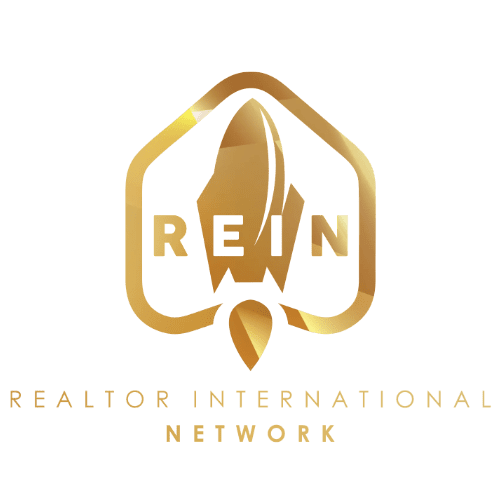An In-Depth Guide to Home Buying – Understanding Home Buying
Buying a home in Punta Cana is a significant milestone that involves a detailed and often intricate process. From initial research and locating suitable properties to negotiating terms and finalizing the purchase, home buying can be complex. To navigate this journey effectively, it’s crucial to understand the key terminology associated with home buying. Here’s an in-depth look at some of the most important terms and concepts.
Table of Contents
Common Home Buying Terms
Appraisal
An appraisal is the professional evaluation of a property’s market value, conducted by a licensed appraiser. This process is vital as it helps determine the maximum loan amount a lender is willing to offer for the property. The appraiser examines various factors, including the condition of the property, recent sales of similar homes in the area, and current market trends.
Closing Costs
Closing costs encompass the various fees and expenses incurred during the finalization of a home purchase. These costs can include:
- Title Insurance: Protects both the buyer and the lender against any potential claims or disputes over the property’s ownership.
- Appraisal Fees: Fees paid for the professional appraisal of the property.
- Attorney Fees: Legal fees for services rendered by an attorney during the home-buying process.
- Inspection Fees: Costs associated with the home inspection to identify any potential issues with the property.
Other fees may also be part of the closing costs, such as loan origination fees, recording fees, and taxes.
Down Payment
The down payment is the initial upfront payment made when purchasing a home. This amount is typically expressed as a percentage of the total purchase price. For example, a 20% down payment on a $300,000 home would be $60,000. The down payment demonstrates the buyer’s financial commitment and can affect the terms of the mortgage, including the interest rate and monthly payments.
Escrow
Escrow refers to a neutral third-party service that holds funds during the home-buying transaction. The funds remain in escrow until all conditions outlined in the purchase agreement are met, such as completing a satisfactory home inspection or securing financing. Once these conditions are fulfilled, the funds are released to the appropriate parties.
Home Inspection
A home inspection is a comprehensive assessment of a property’s condition, conducted by a qualified inspector. The inspector examines the structural integrity, electrical systems, plumbing, roofing, and other critical aspects of the home. The goal is to identify any existing or potential issues that could affect the property’s value or safety. Buyers often use the inspection report to negotiate repairs or adjustments to the purchase price.
Mortgage
A mortgage is a type of loan specifically designed for purchasing residential property. This loan is secured by the property itself, meaning the lender can seize the property if the borrower defaults on the loan. Mortgages are typically repaid over a fixed period, such as 15, 20, or 30 years, with monthly payments that include both principal and interest.
Title Insurance
Title insurance protects both the buyer and the lender from potential claims or liens against the property. This insurance ensures that the buyer receives a clear title to the property, free of any legal disputes. Lenders usually require title insurance as part of the closing process, and it is typically a one-time fee paid at closing.
Pre-Approval
Pre-approval involves securing a loan commitment from a lender before starting the house-hunting process. This step helps buyers understand how much they can afford and the type of loan they qualify for. During pre-approval, the lender reviews the buyer’s financial information, including income, credit score, and debt, to determine the loan amount.
Real Estate Agent
A real estate agent is a licensed professional who assists buyers and sellers throughout the home-buying process. For buyers, agents help locate suitable properties, negotiate purchase agreements, and handle the necessary paperwork. They provide valuable insights into market conditions and guide buyers through each step of the transaction.
Frequently Asked Questions
What distinguishes pre-approval from pre-qualification?
Pre-approval and pre-qualification are both steps in the mortgage process, but they differ in terms of depth and reliability.
–Pre-Qualification: This is an initial assessment where a lender estimates how much a buyer can afford to borrow based on self-reported financial information. It is a preliminary step that provides a general idea of the buyer’s price range.
–Pre-Approval: This involves a more thorough evaluation where the lender verifies the buyer’s financial information and commits to lending a specific amount. Pre-approval is a more formal process that gives buyers a clearer picture of their purchasing power and demonstrates to sellers that they are serious and financially capable.
What exactly is a mortgage?
A mortgage is a loan specifically designed for purchasing a residential property. The key aspects of a mortgage include:
–Secured Loan: The loan is secured by the property itself, meaning the lender has a claim on the property until the loan is fully repaid.
–Repayment Term: Mortgages are typically repaid over a long period, such as 15, 20, or 30 years, with regular monthly payments.
-Interest Rates: Mortgages come with fixed or adjustable interest rates that affect the total cost of the loan over time.
Understanding these terms and their implications can make the home-buying process more manageable and less intimidating. Being well-informed helps buyers make better decisions and navigate the complexities of purchasing a home with confidence.




